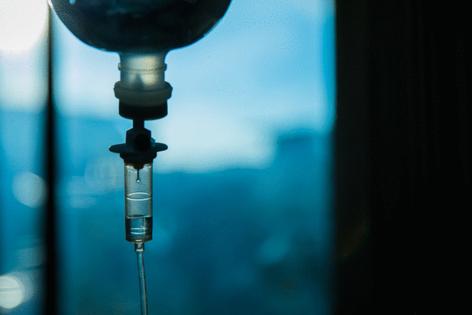Commentary: No, I am not a better doctor since my cancer diagnosis
Published in Op Eds
A few months ago, I had an experience much more familiar to me as a writer than a physician: getting rejected. I had written a piece about my experience as a woman trying to hide her cancer diagnosis. No one wanted to publish it. One major online news outlet suggested a different essay altogether: Write about what I didn’t know about breast cancer as a doctor that I learned only as a patient.
I stared at this request and then shut my computer. Months later, I saw that the outlet published that piece by a different doctor, who detailed her experience with breast cancer and how it made her a more understanding physician. Unlike this brave person, I couldn’t bring myself to write an essay about how I became a better, more empathetic and less judgmental doctor after my cancer diagnosis. Because it wasn’t true.
I am not a perfect obstetrician/gynecologist. But it did not take a breast cancer diagnosis to get me to start performing breast exams when appropriate, nor to remind patients to get their yearly mammograms. It has not made me more careful, either: I do not tell women to systematically examine themselves for lumps and bumps, as it is no longer recommended by the major professional organizations. I preach breast self-awareness (“know what your breasts feel like, watch out for certain warning signs”) and I do not add that this is what allowed me to find my own breast lump in the shower, palpating it with expert fingers, knowing before I knew, that I had found a cancer.
My clinic, near the Bronx in New York, takes public insurance only. Working within the Medicaid/Medicare system is education enough on the inequities in health care, as I struggle to get necessary cardiac testing for my pregnant patients with worrying heart symptoms or find myself booking surgeries four months away because my schedule is overburdened. It did not take my own experience, one of expedited care, VIP treatment and an overabundance of insurance and medical knowledge, to marvel at the disparities baked into our health care system.
Nor did having cancer render me any more or less judgmental. I still feel for the women who squeeze themselves into fajas to thin themselves after a cesarean section. After one of my surgeries, I typed “fajas” into Google to find some of my own, grateful that I had learned the Dominican word for “corset.” And I’m just as likely to privately roll my eyes at a patient who chooses solely naturopathic remedies for cancer treatments as I was before my diagnosis. I am only human, after all.
I hope I am just as empathetic now — after the surgeries, and the chemotherapy, the hair loss and the early menopause — as I was before. Just as likely to hold my patient’s hand as the anesthesia brings her into sleep. Just as likely to sit with a hopeful parent I have just told is having a miscarriage. To feel what my patients feel without making their experience about my own.
This is the crux of my problem with the “now I understand” essays by my peers. They imply that before they had cancer, they didn’t quite view their patients with compassion. It took a life-threatening illness to realize that, yes, their patients are also real people with real lives that are interrupted by the diagnoses we administer. It took cancer to connect.
If this point of view is true of my colleagues, the fault lies with medical training, not with the individual doctor. We are taught to examine patients clinically, as a constellation of symptoms, so that we can determine what is wrong and how to fix it. That’s a good thing — you want your doctor to be able to make a diagnosis.
It’s also important that we have a healthy professional distance from our patients. I have identified stillbirths, seen women die in the labor unit, diagnosed terminal illnesses. I did my medical training during COVID-19. If I were unable to create some kind of wall between those experiences and my daily life, I would fall apart and could not practice medicine effectively for the rest of my patients.
But it should not take a critical illness to understand that patients are people, too. This is being addressed more and more by medical schools, as young doctors are now encouraged to examine their patients in the context of their patients’ lives, in a discipline called narrative medicine. How do they explore their biases and empathy? By putting it in writing, of course.
____
Dr. Alessandra Hirsch is a writer and assistant professor of obstetrics and gynecology at Columbia University Medical Center in New York City. She is working on a memoir about her time in residency during the COVID-19 pandemic.
___
©2025 Chicago Tribune. Visit at chicagotribune.com. Distributed by Tribune Content Agency, LLC.




























































Comments